 W
WL'As du Fallafel is a kosher Middle Eastern restaurant located at 34, Rue des Rosiers in the "Pletzl" Jewish quarter of the Le Marais neighborhood in Paris, France. The restaurant is acclaimed for its falafel sandwich served with eggplant and hummus.
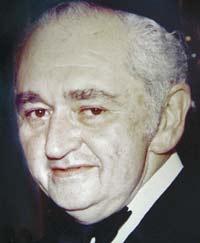 W
WSolomon Bloom, known as Sidney Bloom, was a British Jewish restaurateur, who founded the famous kosher restaurant of Bloom's in London.
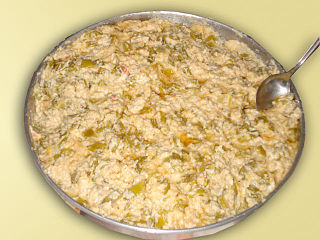 W
WBorani is a salad dish from Iranian cuisine. It is also found in Turkish cuisine where it is associated with certain provinces like Isparta, Urfa and Van. Some versions are made with spinach and yogurt, while the Ancient Persian borani was made with eggplant, and a regional version from Urfa is made with lamb and vegetarian meatballs. Borani is also popular in the Caucasus and Afghanistan.
 W
WBoukha is a distilled beverage produced from figs. It originated in the Tunisian Jewish community, where most of it is still produced.
 W
WBsisa is a typical Mediterranean food, based on flour of roasted barley which dates back to Roman times.
 W
WA corned beef sandwich is a Jewish deli sandwich filled with corned beef, traditionally served with mustard and a pickle.
 W
WEyerlekh are creamy, flavorful unhatched eggs found inside just-slaughtered chickens and typically cooked in soup. They were historically common in Ashkenazi Jewish cuisine, but their usage has become much less frequent with the rise of prepackaged chicken parts.
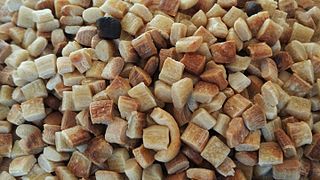 W
WFarfel is small pellet- or flake-shaped pasta used in Ashkenazi Jewish cuisine. It is made from a Jewish egg noodle dough and is frequently toasted before being cooked. It can be served in soups or as a side dish. In the United States, it can also be found pre-packaged as egg barley.
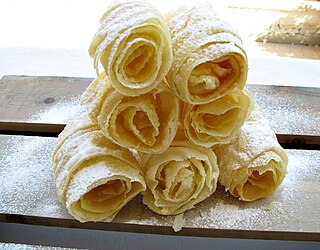 W
WFazuelos, fijuelas, deblas, or orecchie di Ammon are Sephardic Jewish pastries of thin fried dough. In Sephardic tradition, they are eaten at Purim; the Italian name recalls the shape of Haman's ears, similarly to the Hebrew name for hamantashen, oznei Haman.
 W
WFritas de prasa, also known as Keftes de prasa and in Hebrew קציצות כרישה, are a traditional Sephardi Jewish and Israeli fried potato-leek pancake similar to a latke, that is traditionally served for Hanukkah and other Jewish holidays.
 W
WHolishkes is a traditional Jewish cabbage roll dish. Holishkes are prepared from lightly boiled ("blanched") cabbage leaves wrapped in a parcel-like manner around minced meat and then simmered in tomato sauce. Sometimes rice is added to the meat filling. While the dish is eaten all year round, it is customarily served on Sukkot to symbolize a bountiful harvest, and on Simchat Torah because two stuffed cabbage rolls placed side by side resemble Torah scrolls.
 W
WA Jerusalem bagel is a type of bread baked in Jerusalem. It has a ring shape but is otherwise unlike a traditional boiled bagel. Instead, it is derived from the ka'ak bread ring which is found throughout the Middle East. Typically, this is a yeasted, crusty bread which is shaped into an oblong ring and covered in sesame seeds. The dough has a lighter texture than a traditional bagel.
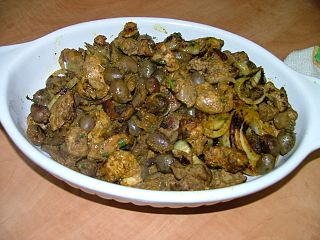 W
WJerusalem mixed grill is a grilled meat dish considered a specialty of Jerusalem. It consists of chicken hearts, spleens and liver mixed with bits of lamb cooked on a flat grill, seasoned with onion, garlic, black pepper, cumin, turmeric, olive oil and coriander.
 W
WJewish apple cake is a dense cake made with apples which originated in Poland, but is now sold mostly in the U.S. state of Pennsylvania. Apples are common in Jewish Ashkenazi cooking and are a part of the traditional food served during the Jewish holiday of Rosh Hashanah. Jewish apple cake is traditionally made without dairy products, and may, therefore, be eaten with meals containing meat, in accordance with Jewish dietary laws of kashrut, which forbid the mixing of meat and milk products in the same meal.
 W
WA Jewish deli, also known as a Jewish delicatessen, is a delicatessen establishment that serves various traditional dishes in Ashkenazi Jewish cuisine, and are typically known for their sandwiches such as pastrami on rye, as well as their soups such as matzo ball soup, among other dishes. Most of them are in the Ashkenazi style, due to the history of the Jewish diaspora that has sometimes been adapted to local taste preferences, as in the American Jewish cuisine. Jewish delicatessens serve a variety of Jewish dishes, and many are also kosher-certified, while some are kosher-style and do not mix meat and dairy in the same dish, while others serve food with no dietary restrictions such as the Reuben sandwich. Jewish delis feature prominently in Jewish culture, as well as in general American popular culture, particularly in the cities of New York and Los Angeles.
 W
WKichel is a popular sweet cracker or cookie in Jewish cuisine commonly made with eggs, flour, and sugar rolled out flat and cut into large bowtie shapes. Although sweet they are typically eaten with a savoury dip or topping. They are also popular in Israel as a sweet snack or dessert. Jews in South Africa commonly serve kichel with chopped herring. Due to their light, airy nature, the cookies have sometimes been called "nothings." When prepared with matzah meal rather than flour, kichlach can be consumed during the Passover holiday.
 W
WKosher Supervision of America is a not-for-profit Kashrut organization based in Los Angeles, California, United States which was certified to operate as of January 31, 1996. Its primary purpose is to certify food as kosher. The Kashrus Administrator is Rabbi Binyomin Lisbon.
 W
WKubbeh, also known as kubbe, is a family of dishes Iraqi and Kurdish Jewish origin that are also popular in Syria, and consist of a filled dumpling soup, with a wide array of fillings and soup broths. Once almost exclusively made at home by members of the Iraqi and Kurdish community, since the early 20th century the popularity of the dish has expanded to Israelis of all backgrounds and is commonly served in restaurants across the nation, most notably in the Machane Yehuda market in Jerusalem.
 W
WLahoh, also laḥūḥ, meaning "flat" in Arabic from the Arabic root word "lowh" ("لوح"), is a spongy, flat pancake-like bread that originated from Somalia. It is a type of flat bread eaten regularly in Somalia, Somaliland, Djibouti, Ethiopia and Yemen, and Yemenite Jewish immigrants have popularized the dish in Israel. It is called Laxoox/Lahoh or Canjeero in Somaliland, Somalia and Djibouti, and called Lahoh/Lahuh in Yemen, respectively.
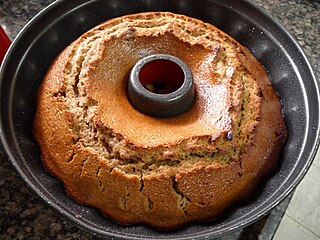 W
WLekach is a honey-sweetened cake made by Jews, especially for the Jewish holiday of Rosh Hashanah. Known in Hebrew as ʿougat dvash the word lekach is Yiddish. Lekach is one of the symbolically significant foods traditionally eaten by Ashkenazi Jews at Rosh Hashanah in hopes of ensuring a sweet New Year.
 W
WMahia is a Moroccan Jewish alcoholic beverage distilled from dates. It is also sometimes prepared with figs.
 W
WMiodownik, or chonek łejkech, is a dessert cake which, together with the cuker łejkech, serves as a popular wedding cake in Jewish cuisine.
 W
WMsoki is a Jewish soup traditional to Algerian and Tunisian Jews, and is most often eaten during feasts and in most, during the celebration of Passover.
 W
WMurray's Sturgeon Shop is an appetizing store and neighborhood fixture in Manhattan's Upper West Side. It is located on Broadway between 89th Street and 90th Street.
 W
WBeera Nesher is a brand of Israeli beers and non-alcoholic malt beverages. It was the first beer industrially produced in Israel. First produced in 1935 by "Palestine Brewery Ltd" in Bat Yam, it is today brewed by Tempo Beer Industries in Netanya.
 W
WPastelitos de hoja is a Sephardic Jewish pastry originating in the Jewish community that formerly existed in Tetouan, Morocco.
 W
WPescado frito, also called Pescaíto frito, is a traditional dish from the Southern coast of Spain, typically found in Andalusia, but also in Catalonia, Valencia, the Canary Islands and the Balearic Islands.
 W
WIn Israel, Pitzuchim is a colloquial term referring to varieties of nuts and seeds that one can crack open between ones' teeth and eat as a snack.
 W
WSave the Deli: In Search of Perfect Pastrami, Crusty Rye, and the Heart of Jewish Delicatessen is a book published by Canadian journalist David Sax about the decline of the Jewish delicatessen.
 W
WSecrets of a Jewish Mother is a Jewish secular culture book, published in 2010, written by Jill Zarin, Lisa Wexler, and Gloria Kamen. The book comprises recipes, advice, and parenting tips. The first paperback copies came out on March 1, 2011. The book has been the source of some controversy because of a positive good review being posted to Amazon, allegedly by Zarin under a pseudonym.
 W
WSólet is a traditional Hungarian-Jewish stew made with kidney beans, barley, onions, paprika, and usually meat. While traditionally a Jewish food, prepared on Fridays before Shabbat and eaten the following day for lunch, it is also commonly eaten by non-Jewish Hungarians, who may even add pork.
 W
WStar-K Kosher Certification, also known as the Vaad Hakashrut of Baltimore, is a kosher certification agency based in Baltimore, Maryland, under the administration of Rabbi Moshe Heinemann, with the involvement of many other rabbis. It is one of the largest Jewish dietary certification agencies in North America. It is trusted by many orthodox Jews worldwide for dedication to preserving Kashrut. The organization supervises tens of thousands of commercial food products and food establishments around the world.
 W
WIn baking and pastry making, streusel is a crumbly topping of flour, butter, and sugar that is baked on top of muffins, breads, pies, and cakes. Some modern recipes add spices and chopped nuts. The mixture can also be layered or ribboned in the middle of a cake.
 W
WStuffed dates are boiled dates filled with meat, mint and parsley. It is a popular Levantine dish and is served on rice or bulgur. Variations can include fresh or dried dates.
 W
WTandyr nan, tandir non (Uzbek) or tonur nan, also called lepyoshka, is a type of Central Asian naan.
 W
WTeiglach, also spelled taiglach or teglach are small, knotted pastries boiled in a honeyed syrup. They are a traditional Ashkenazi Jewish treat for Rosh Hashana, Sukkot, Simchat Torah, and Purim.
 W
WTulumba or Bamiyeh is a deep-fried dessert found in Turkey and the regional cuisines of the former Ottoman Empire. It is a fried batter soaked in syrup, similar to jalebis and churros. It is made from unleavened dough lump given a small ovoid shape with ridges along it using a pastry bag or cookie press with a suitable end piece. It is first deep-fried to golden colour and then sugar-sweet syrup is poured over it when still hot. It is eaten cold.
 W
W(Hebrew: זרוֹע) is a lamb shank bone or roast chicken wing or neck used on Passover and placed on the Seder plate. It symbolizes the korban Pesach, a lamb that was offered in the Temple in Jerusalem, then roasted during the destruction of the Temple, the z'roa serves as a visual reminder of the Pesach sacrifice. In Ashkenazi and many Sephardi families, it is not eaten or handled during the Seder, as it represents a sacrifice made at the Temple, but is not actually, making it taboo to eat. Vegetarians often substitute a beet, quoting Pesachim 114b as justification.